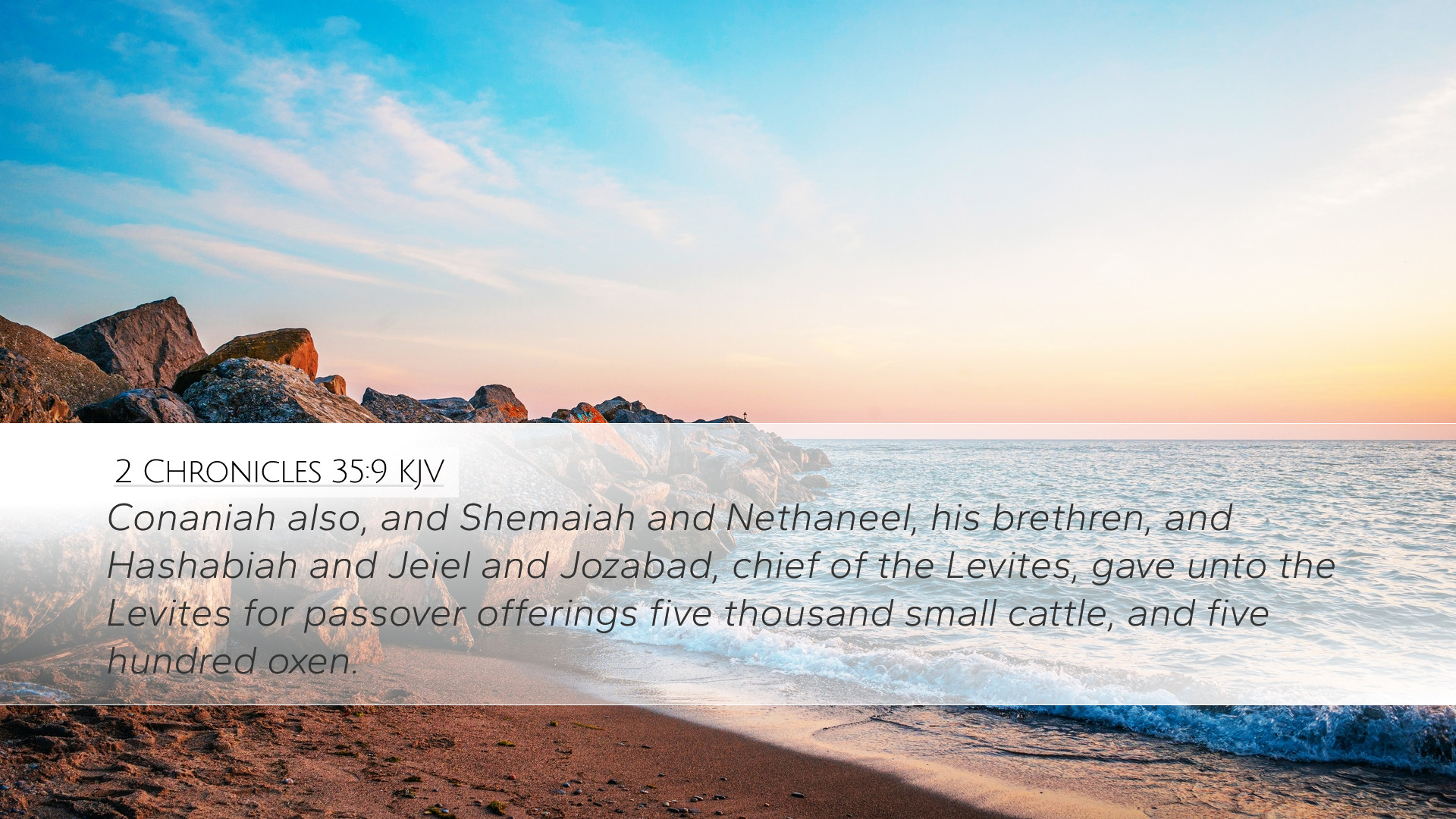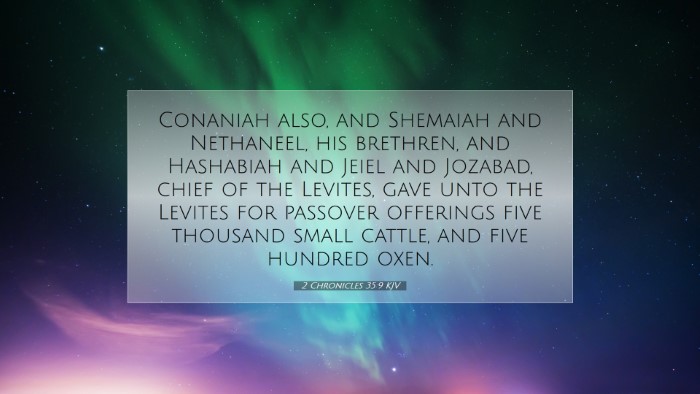Commentary on 2 Chronicles 35:9
2 Chronicles 35:9 states: "And Conaniah the chief of the Levites had the charge of the offerings and he was assisted by his brethren, Zechariah, and the sons of Immanuel, and he was chief among the Levites for he was well instructed in the songs of the Lord; and those who were appointed to serve in the house of the Lord included those who were made responsible for the animals, their portion of the offerings."
Summary and Insights
This verse is a part of the larger narrative of King Josiah's reforms and his celebration of the Passover, a pivotal event in Judah's history. It provides insight into the organization of worship and the roles assigned to the Levites during the observance of the Passover feast, linking it to themes of restoration, leadership, and spiritual education.
1. The Role of Conaniah
Conaniah is appointed as the chief of the Levites for this critical event. Matthew Henry highlights how this leadership role was not merely administrative but also a position requiring spiritual discernment. Conaniah’s effective handling of the offerings speaks to the importance of leadership in worship—a critical aspect also noted by Adam Clarke. Clarke mentions that adequate preparation and acknowledgment of one’s role in worship are essential for the clergy.
2. Assistance and Collaboration
-
Collaboration in Leadership: The presence of Zechariah and the sons of Immanuel underlines the importance of teamwork in administering the sacred duties. Barnes emphasizes that effective ministry in God’s house involves not only leaders but also supports from the community.
-
Shared Learning: The inclusion of brethren to assist Conaniah reflects the idea that responsibilities in worship are shared, fostering a spirit of unity and cooperation among the Levites. This is crucial for the effective running of sacrificial offerings.
3. Spiritual Qualification and Training
The verse highlights that Conaniah was well instructed in the songs of the Lord. This emphasis on musical training is significant. Adam Clarke points out that proper instruction in spiritual matters—whether it be in music, liturgy, or Scripture—is essential for those leading in worship. Thus, there's an implicit call for church leaders to seek deeper knowledge and understanding of their duties.
4. Theological Implications
This verse stands as a template for contemporary worship practices. By choosing qualified individuals for service, it affirms the need for a theological education and training within church contexts. Pastors and theologians may reflect on how Conaniah’s preparation might apply in their settings today.
-
Importance of Preparation: The readiness of the Levites to serve and participate in worship signifies the importance of being spiritually prepared for service in the church, which resonates deeply with the broader ecclesiological practices today.
-
God's Design for Worship: The careful organization presented in this verse speaks to the orderliness of worship as ordained by God. This order reflects God’s nature and intention for his people, emphasizing that worship is not haphazard but requires due diligence.
5. Conclusion
In conclusion, 2 Chronicles 35:9 encapsulates the essence of communal worship, leadership, training, and the importance of proper duties assigned within the Church. The lessons derived from Conaniah's example continue to resonate with today's pastors, students, and scholars, inviting further reflection on how to structure worship practices that align with biblical precedents while fostering spiritual growth within the community.


